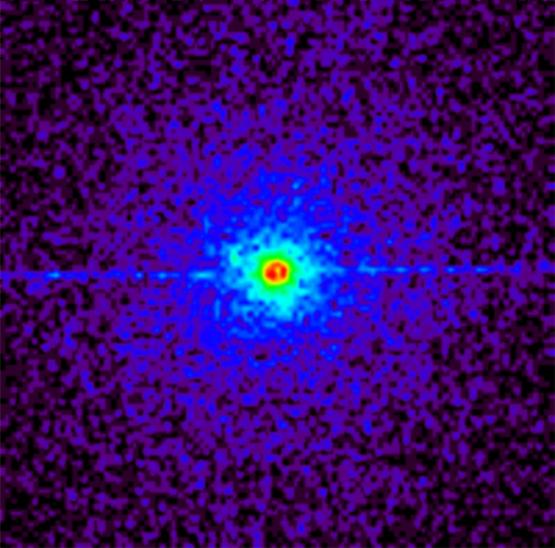
 Credit: NASA/CXC/SAO
Credit: NASA/CXC/SAO
A Halo of X-rays
Surrounding every object in the heavens is a halo of radiation. This halo
has a rather prosaic cause - it's produced by the dust which permeates the
Galaxy. The image above shows probably the best example of an X-ray halo
yet obtained. This halo surrounds the weird binary system Cygnus X-3, 2
gravitationally bound stars, one which is probably a compact object like a
neutron star, and one which is probably a star on its way to becoming a
neutron star. Material from the companion falls on the neutron star and
produces X-rays. If space were truly empty this object would appear as an
unresolvable point of light. In reality, dust in the Galaxy between us and
Cygnus X-3 scatters the X-radiation from the star, so the point of light
appears larger than it really is. This mechanism is similar to the way ice
crystals in our atmosphere produce halos
around the sun (though such solar halos are the result of the bending,
not the scattering, of light). The false-color image above shows the X-ray
halo around Cyg X-3 as a blue glow around the central (yellow-red) source.
This image was obtained by the ACIS instrument on the Chandra X-ray observatory. Since Cyg
X-3 varies, astronomers can use the delay in the variability in the
scattered "dust halo" to measure
an accurate distance to the star.
Last Week *
HEA Dictionary * Archive
* Search HEAPOW
* Education
Each week the HEASARC
brings you new, exciting and beautiful images from X-ray and Gamma ray
astronomy. Check back each week and be sure to check out the HEAPOW archive!
Page Author: Dr. Michael F.
Corcoran
Last modified May 1, 2000


